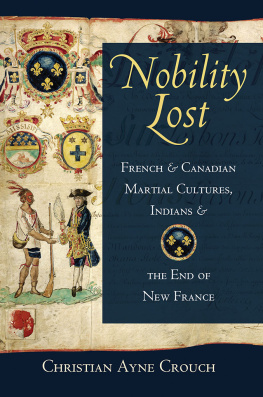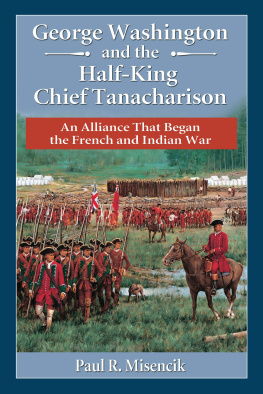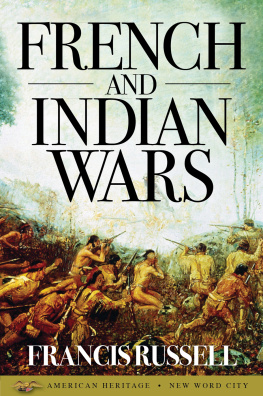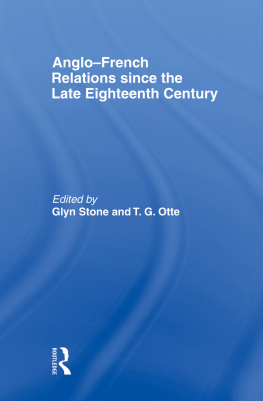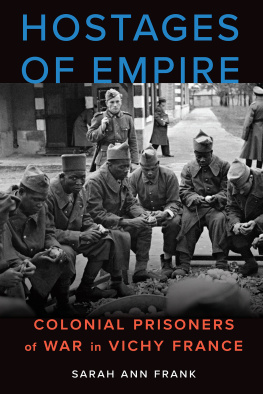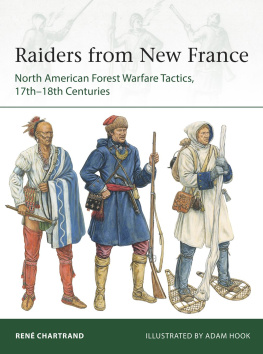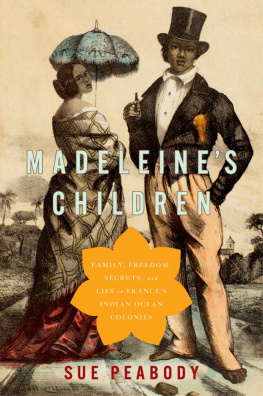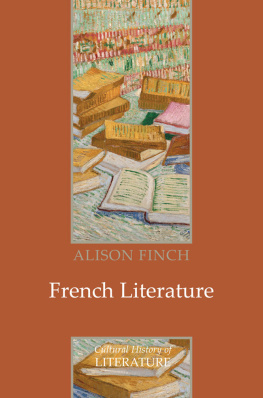Christian Ayne Crouch - Nobility Lost: French and Canadian Martial Cultures, Indians, and the End of New France
Here you can read online Christian Ayne Crouch - Nobility Lost: French and Canadian Martial Cultures, Indians, and the End of New France full text of the book (entire story) in english for free. Download pdf and epub, get meaning, cover and reviews about this ebook. year: 2014, publisher: Cornell University Press, genre: History. Description of the work, (preface) as well as reviews are available. Best literature library LitArk.com created for fans of good reading and offers a wide selection of genres:
Romance novel
Science fiction
Adventure
Detective
Science
History
Home and family
Prose
Art
Politics
Computer
Non-fiction
Religion
Business
Children
Humor
Choose a favorite category and find really read worthwhile books. Enjoy immersion in the world of imagination, feel the emotions of the characters or learn something new for yourself, make an fascinating discovery.
- Book:Nobility Lost: French and Canadian Martial Cultures, Indians, and the End of New France
- Author:
- Publisher:Cornell University Press
- Genre:
- Year:2014
- Rating:5 / 5
- Favourites:Add to favourites
- Your mark:
Nobility Lost: French and Canadian Martial Cultures, Indians, and the End of New France: summary, description and annotation
We offer to read an annotation, description, summary or preface (depends on what the author of the book "Nobility Lost: French and Canadian Martial Cultures, Indians, and the End of New France" wrote himself). If you haven't found the necessary information about the book — write in the comments, we will try to find it.
Nobility Lost is a cultural history of the Seven Years War in French-claimed North America, focused on the meanings of wartime violence and the profound impact of the encounter between Canadian, Indian, and French cultures of war and diplomacy. This narrative highlights the relationship between events in France and events in America and frames them dialogically, as the actors themselves experienced them at the time. Christian Ayne Crouch examines how codes of martial valor were enacted and challenged by metropolitan and colonial leaders to consider how those acts affected French-Indian relations, the culture of French military elites, ideas of male valor, and the trajectory of French colonial enterprises afterwards, in the second half of the eighteenth century. At Versailles, the conflict pertaining to the means used to prosecute war in New France would result in political and cultural crises over what constituted legitimate violence in defense of the empire. These arguments helped frame the basis for the formal French cession of its North American claims to the British in the Treaty of Paris of 1763.
While the French regular army, the troupes de terre (a late-arriving contingent to the conflict), framed warfare within highly ritualized contexts and performances of royal and personal honor that had evolved in Europe, the troupes de la marine (colonial forces with economic stakes in New France) fought to maintain colonial land and trade. A demographic disadvantage forced marines and Canadian colonial officials to accommodate Indian practices of gift giving and feasting in preparation for battle, adopt irregular methods of violence, and often work in cooperation with allied indigenous peoples, such as Abenakis, Hurons, and Nipissings.
Drawing on Native and European perspectives, Crouch shows the period of the Seven Years War to be one of decisive transformation for all American communities. Ultimately the augmented strife between metropolitan and colonial elites over the aims and means of warfare, Crouch argues, raised questions about the meaning and cost of empire not just in North America but in the French Atlantic and, later, resonated in Frances approach to empire-building around the globe. The French government examined the cause of the colonial debacle in New France at a corruption trial in Paris (known as laffaire du Canada), and assigned blame. Only colonial officers were tried, and even those who were acquitted found themselves shut out of participation in new imperial projects in the Caribbean and in the Pacific. By tracing the subsequent global circumnavigation of Louis Antoine de Bougainville, a decorated veteran of the French regulars, 17661769, Crouch shows how the lessons of New France were assimilated and new colonial enterprises were constructed based on a heightened jealousy of French honor and a corresponding fear of its loss in engagement with Native enemies and allies.
Christian Ayne Crouch: author's other books
Who wrote Nobility Lost: French and Canadian Martial Cultures, Indians, and the End of New France? Find out the surname, the name of the author of the book and a list of all author's works by series.

